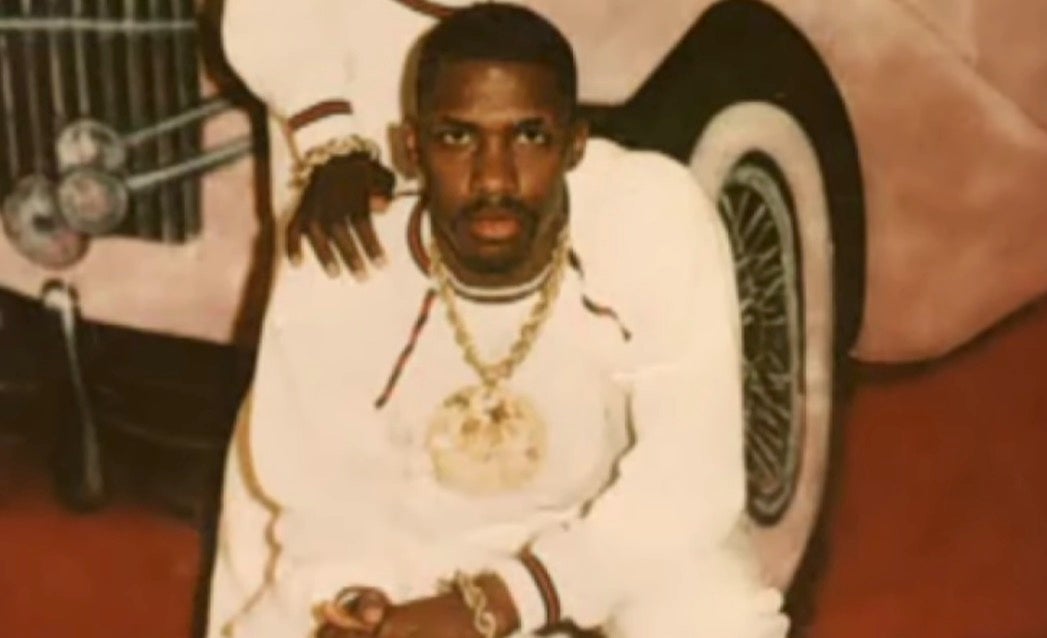Notorious DC drug kingpin Rayful Edmond dies aged 60
Drug dealer linked with the crack cocaine epidemic of the 1980s was due to be released from custody next year

Rayful Edmond, a notorious Washington DC-based drug dealer from the 1980s, has died in Florida while living in a halfway house.
He was 60.
Scott Taylor, a representative of the Federal Bureau of Prisons, confirmed his death to The Independent but did not provide further details.
“For safety, security, and privacy reasons, our office does not share specifics regarding the cause of death for any individual,” Taylor said. The Miami-Dade County Medical Examiner’s Office told The Independent they did not have a record for the decedent.
Edmond was still in federal custody and had a projected release date of November 2025.
The drug dealer was sentenced to life in prison without the possibility of parole after a jury convicted him of running a criminal drug enterprise in 1990, which was considered to be the largest drug operation in Washington DC history. Edmond is believed to have controlled about a third of the cocaine trade in Washington DC during the crack epidemic.
Once he arrived in prison at age 25, Edmond continued running his drug business from a maximum-security federal facility in Pennsylvania, smuggling narcotics through the visitation room. He hired inmates whose girlfriends would bring the drugs in inside small balloons and pass them to their boyfriends during contact visits.

When he was caught, Edmond cooperated with federal investigators and explained how he trafficked drugs while in prison.
He even admitted committing the crimes in a 60 Minutes interview, telling the interviewer he dealt cocaine, crack, heroin and marijuana from inside prison walls.
“I did it all,” he said in the interview.
Edmond plotted and executed the distribution of more than two tons of cocaine and crack from Colombia to Washington DC, in addition to selling drugs to other prisoners.
“In some ways, he’s like the Babe Ruth of crack dealers,” Eric Holder, the former attorney general, said in the interview, explaining how Edmond managed to increase the amount of drugs he was selling from inside prison.
“At its maximum, he was doing about 400 kilograms of cocaine per month while in prison, and while on the street he was doing about 300 at its maximum.
“I think it’s much easier than when you’re on the street,” Edmond said about his gains.
The felon went into business with another notorious drug dealer, Osvaldo Trujillo-Blanco, the son of Griselda Blanco, while at the facility. After Trujillo-Blanco got out of prison, Edmond would contact him using the prison’s telephones. He’d call a friend in DC who would connect him with Trujillo-Blanco in Colombia.
In response to a question about the operation, Holder told the interviewer that there were not enough prison staffers to listen in on the phone calls so the feds did not know what the men were up to. Even so, Edmond communicated in code and Pig Latin.
When Trujillo-Blanco died, Edmond established a business partnership with another inmate who was part of the Cali Cartel.
A jailhouse informant ultimately shut down Edmond’s endeavors by submitting a tip to DC police and the FBI. When officials went to Edmond with the evidence, he cooperated and told them exactly how he ran the operation, leading to the arrests of 15 people. At one point, he entered the witness protection program and was transferred to a different facility under an alias.
He said he decided to cooperate to help guarantee lesser prison terms for his mother and sisters, who helped him deal drugs. Before getting locked up, his mother had a federal government job making $40,000 a year but both she and her ex-husband sold drugs when Edmond was a child.
The drug kingpin told the 60 Minutes interviewer he felt bad about bringing drugs into his community, causing some children to be born addicted to crack.
As a result of his crimes, the prison bureau created a task force to evaluate in-prison drug dealing.
